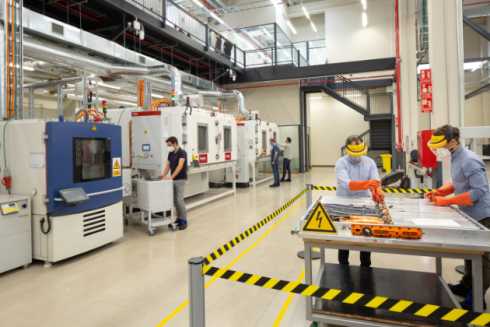SEAT has opened a new €7 million battery research and development centre for electric and plug-in hybrid cars.
The centre (known as TCE) at the carmaker’s Technical Centre in Martorell (Barcelona), is part of the Volkswagen Group’s global R&D network and is the group’s first such centre in Europe outside Germany, alongside those already running in China and the United States.
The TCE is intended to become a key element of Seat’s project to lead the electrification of the Spanish car industry and is part of the €5 billion investment plan announced by the company to electrify not just its vehicles but also its factories.

The opening ceremony was attended by the Spanish Minister of Science and Innovation, Diana Morant, and the Catalan conseller of Business and Employment, Roger Torrent, who visited the facilities together with Seat and Cupra CEO Wayne Griffiths and the company’s vice-President for R&D, Werner Tietz.
“Today is an important day for the future of Seat. We have the opportunity, and responsibility, to completely change our industry”, said Griffiths.
“The TCE will carry out up to 6,000 different tests a year, which will allow us to validate and guarantee the performance of battery and charging systems. Today’s launch is great news not only for the electrification of the company, but also because it will allow us to position ourselves as a benchmark in the development of solutions for sustainable electromobility”, added Tietz.
As part of its strategy, Seat plans to manufacture electric vehicles in Martorell from 2025.
Built in just 18 months, the TCE covers 1,500 square metres. In total, it has a test capacity of 1.3 megawatts, which is the equivalent power required by 350 households to have all electrical devices switched on at the same time, or over 100,000 mobile phones charging simultaneously. The facilities also house a workshop designed and equipped for testing electrified vehicles, with the space to work with up to eight cars at a time.
It also features several climatic chambers which test batteries and modules under extreme thermal conditions, between -25 and +55 ºC, thus simulating the different conditions that a car may encounter in its life cycle.
READ MORE:
